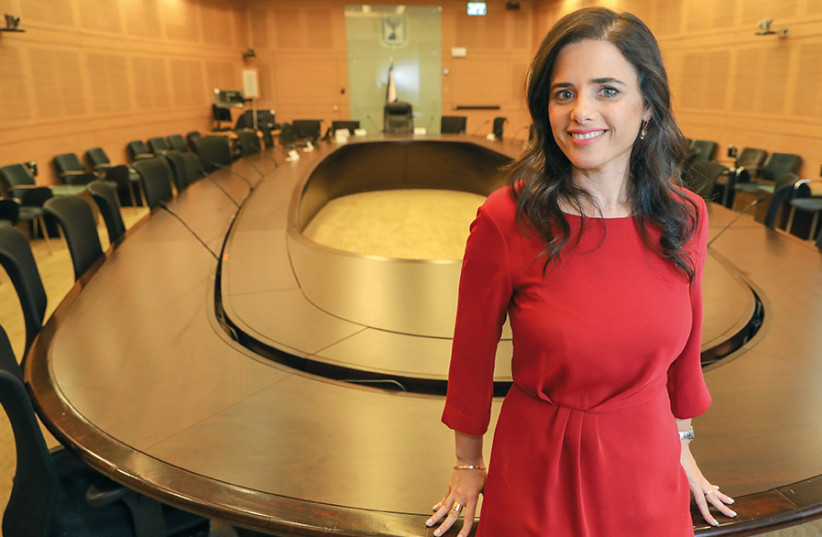Rabbi Yaakov Medan, dean of the Har Etzion Yeshiva and a leading religious-Zionist figure, on Wednesday expressed his support for Interior Minister Ayelet Shaked and her Jewish Home Party (HaBayit HaYehudi) in the upcoming election.
Medan, who is considered to be a leader of the more liberal groups of religious Zionism in Israel, also criticized opposition leader Benjamin Netanyahu.
“We must not let revenge and hatred dictate us to bury the chance of making a Jewish and Zionist decision,” he said.
Medan opened his letter with the caveat that many of his close associates had advised him not to take a public stance on the upcoming elections, but he felt he had to.
“The big question is which party will be the tiebreaker in the threatening tie that we were forced into in all the last election campaigns,” he wrote. “This draw may constitute an existential strategic danger, especially at this time of threats against us from Tehran to Jenin.”

“Assuming that the Habayit Hayehudi Party will not pass the political threshold, there is, in my opinion, a real danger that the parties from the Left will sign an agreement with [political] Arab support… and form a government.”
Rabbi Yaaqov Medan
The two issues that can affect this election and its results are the vote for the Arab parties on the one hand and if Habayit Hayehudi will receive enough votes to pass the political threshold, Medan said. A political party must receive at least 3.25% of the votes to gain a seat in the Knesset.
“Assuming that HaBayit HaYehudi will not pass the political threshold, there is, in my opinion, a real danger that the parties from the Left will sign an agreement with [political] Arab support… and form a government,” Medan wrote. “The price that may be paid in exchange for this support is a price that may call into question the continuation of the State of Israel as a Jewish state. We all agree on the need to give every citizen full rights,” and “this is not what the discussion is about.”
“The State of Israel as ‘a state of all its citizens’ and not as a Jewish state” would be the “demise of the Zionist dream of generations,” he added.
“The danger that a left-wing government will be established with the external support of the Arabs is a real danger and it should keep us alert,” Medan wrote.
According to the polls, HaBayit HaYehudi does not yet have enough support to pass the political threshold.
“The mobilization of many of us in favor of HaBayit HaYehudi may, according to the polls, result in it passing the threshold,” Medan wrote, adding that if this happens, the party “will be the tiebreaker.”
Medan criticized what he called “a very deep feeling of vindictiveness of those disappointed by the political right-wing during the last elections and a very deep hatred of the Netanyahu family for Shaked.”
Medan is a respected leader in the religious-Zionist community and a popular lecturer in Tanach, Talmud and Jewish philosophy.
Should rabbis be getting political?
In response to Medan’s letter, Rabbi Avraham Stav, the son of Tzohar head Rabbi David Stav and a young opinion leader in the religious-Zionist community, said: “As the days go by, more and more rabbis have been publishing their position regarding the upcoming elections.”
“These rabbis usually do not have the tools and the ability to pronounce a clear halachic answer in a complex political arena. It is not that the Torah is disconnected from practical life, yet Maimonides emphasized that God's knowledge should not remain a personal experience, but to lead a person to a life of doing kindness, justice and charity in the nation of Israel.”
Rabbi Avraham Stav
This is “a wrong and harmful step,” he said, because “these rabbis usually do not have the tools and the ability to pronounce a clear halachic answer in a complex political arena. It is not that the Torah is disconnected from practical life, yet Maimonides emphasized that God’s knowledge should not remain a personal experience, but should lead a person to a life of doing kindness, justice and charity in the Nation of Israel.”
